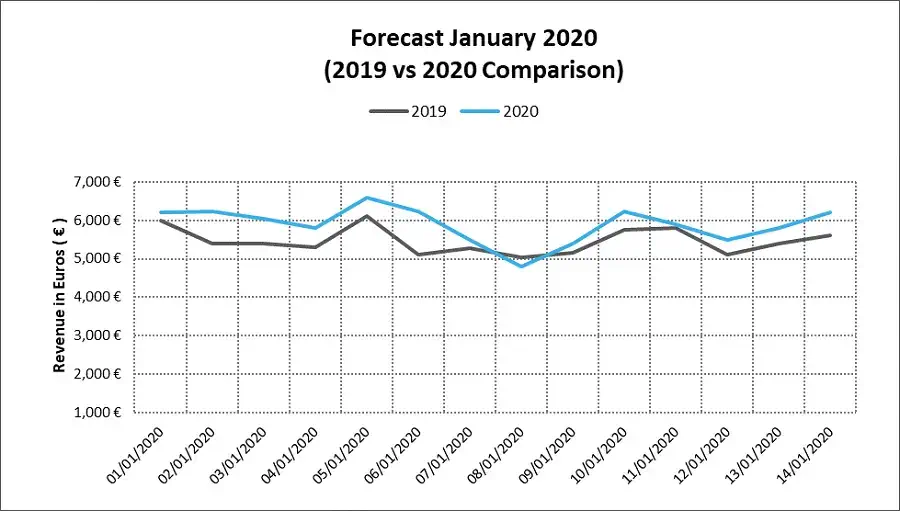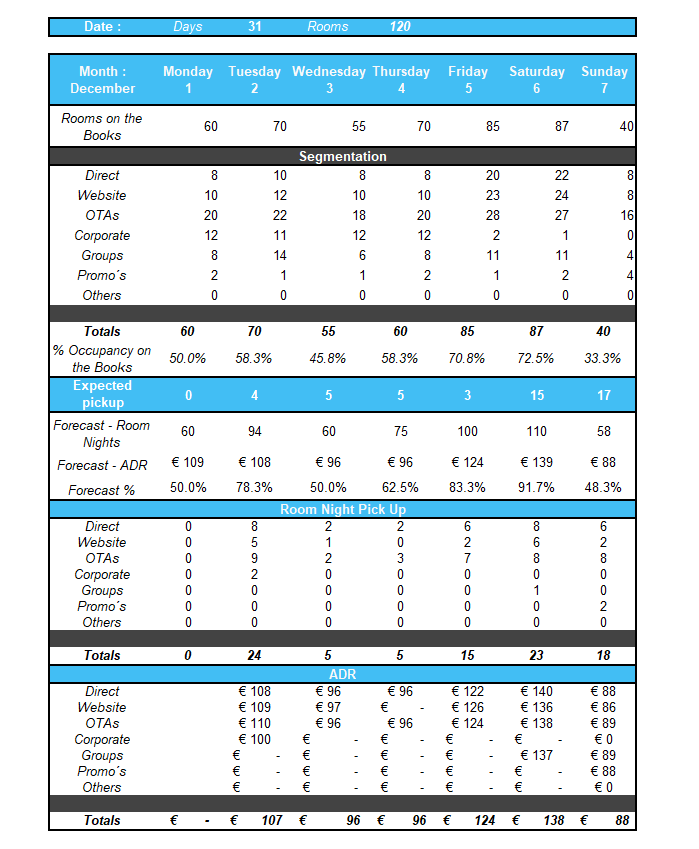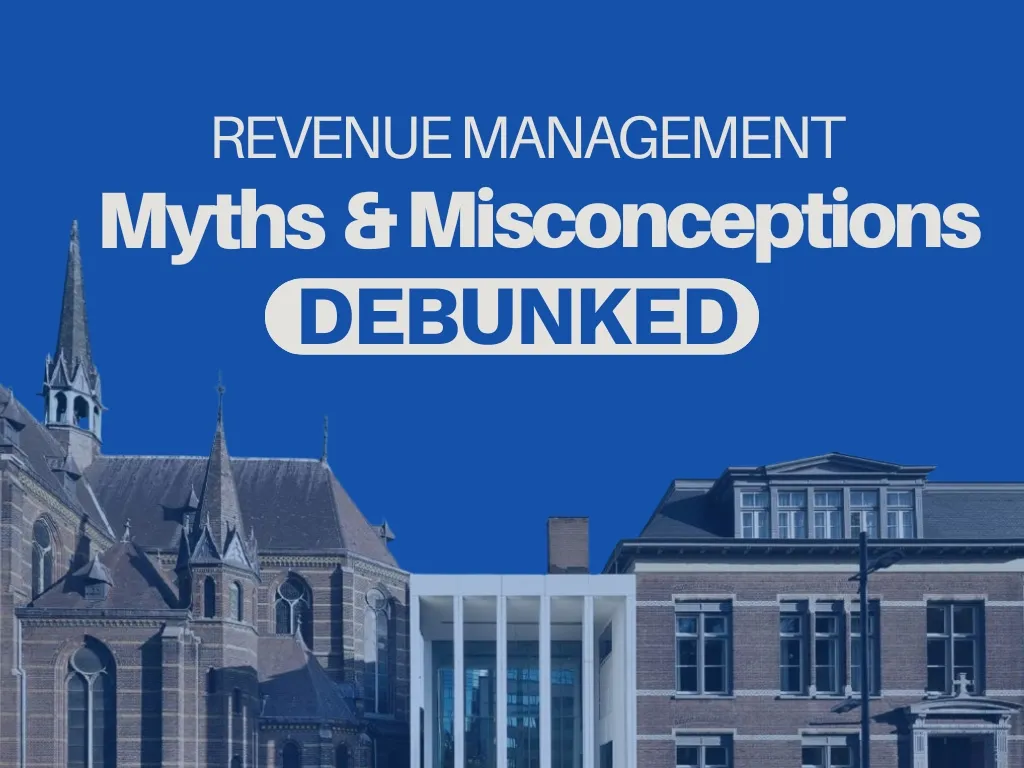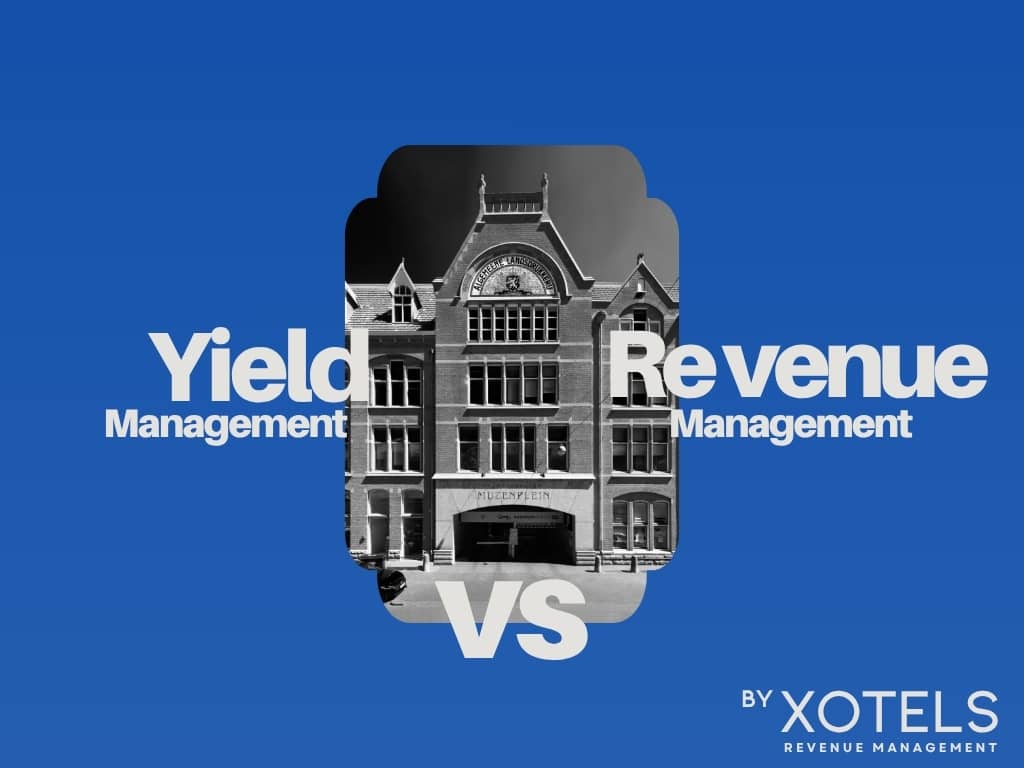How to Forecast Hotel Revenue with Optimized Precision
As a hotel revenue management consulting company, at XOTELS, it has been a while since we covered this topic on our hotel management blog, so I thought it would be good to have another look at forecasting in hotels. With reservation lead time changing in key markets we operate in, it is becoming more challenging to forecast accurately.
And still, it is essential to give our operational departments a realistic financial outlook to run the day to day operations of the hotel as cost-effective as possible. And also owners and investors need to have insight and the right expectations on the financial performance of their hospitality business.
As Fildes and Lusk (1984) said, ‘‘no reasonable forecaster can identify the ‘best’ method from the various forecasting competitions and adopt that method for his/her specific forecasting problem ̈.
Instead, the accuracy of hotel revenue forecast results benefits from taking multiple outcomes across forecasting methods to reach a more comprehensive, robust analysis. The revenue manager’s responsibility is to consider the multiple outcomes produced by a forecast and efficiently deal with the implications and possible deviations from the adopted strategy.
In this way, a critical reflection on the achieved results can take place, and if any potential optimization can be achieved in the future by adjusting strategy.
Demand forecasting is of critical importance when optimizing hotel revenue, as it anticipates future business performance. It does this by identifying outliers in the form of data points that deviate from average performance to maximize results.
Valuable insights that hotel managers glean from forecasting can form the foundation for strategic decision-making to optimize hotel revenue performance. As hotel rooms are a perishable asset, forecasting is an indispensable means to maximize hotel occupancy rates.
Creating a Successful Forecasting Model for Your Hotel
There are various types of tools available for your hotel to carry out a thorough, accurate forecast, which differ depending on your needs and budget. To complement available information to revenue managers, leading hotels tend to use a hotel Revenue Management System (RMS), as they are affordable, efficient, and high-performing. The main strength of an RMS is that they use advanced algorithms to improve forecasting precision.
Exploring 3 Popular Hotel Revenue Forecasting Models
Forecasting falls into three main categories: 1, operational forecasting; 2, financial forecasting; and 3, revenue management forecasting (unconstrained demand forecasting). Each of the three increases revenue in a different way.
1. Operational Forecasting
- This method focuses on operations areas across the hotel. Chiefly, these are:
- Staff allocation per department and with seasonal peaks and troughs taken into consideration.
- Reception, with peak times front of mind.
- Restaurants, including the number of covers for breakfast, lunch and dinner, and average spend per cover. It also scrutinizes the purchasing obligations for both perishable and non-perishable restaurant produce, products, and equipment.
- Risk management, including contingency plans to offset any type of damage.
2. Financial Forecasting
This forecast type offers a prediction of revenue and profitability for owners and investors. It anticipates desired cash flow per month to compensate for periods of low demand – otherwise known as seasonality reserves. An example is a beach resort that closes during winter and so must generate enough revenue during busy season.
Key metrics for financial forecasting include payments for any property mortgages, insurance, licence fees, amortization of loans and assets that are constant, regardless of whether the hotel’s doors are open or not.
Additional key metrics include any planned renovations and maintenance operations during the off-season, and the impact of any tax payment or interest rate obligation changes.
3. Revenue Management Forecasting (Unconstrained Demand Forecast)
revenue management gives hotel managers insights over future demand management. At its core, it takes into account room rate decisions and displacement reviews for possible group reservations. It incorporates market data, including competitor pricing and overall market performance, and applies seasonal pricing models to increase occupancy rates at the optimal revenue maximization price. Revenue management also offers hotels a marketing and sales advantage, as it advertises for rooms with lower demand and hyper-targets the buyer persona that is likeliest to visit.
The Unique Advantages that Revenue Management Forecasting Offers
The main difference is that revenue management forecasting begins by actually taking figures that the hotel already has on their books, using them as a base point to map out possible future revenue scenarios by leveraging intricate analysis processes.
Revenue manager output is used as a foundation to inform hotel departments and set parameters for optimal performance according to expected demand. This includes opportunities and initiatives that various departments within hotel can implement. A revenue manager also increases marketing efforts and determines which customer segments to target and periods in which to use certain tactics and strategy. For instance, in low demand periods, promotions can be used to attract a demographic with lower disposable income.
Other areas that revenue management forecasting target include required staffing adjustments and product purchase, including linen, food and drink, and so forth, to prevent shortages and excess waste. Hotel departments can adjust their strategy and execution accordingly with richer insights that revenue managers provide. After all, a revenue manager’s core responsibility is to deliver precise, rich information that generates key business insights, that in turn accelerate revenue across the hotel.
9 Key Focus Areas for Outstanding Revenue Management Forecasting Success
There are various areas within revenue management forecasting that contribute to your results. Addressing all of these areas with the requisite attention, determination, and diligence will position your hotel for optimized outcomes.
You can use data from previous financial years to build a naive forecast (baseline forecast), before elaborating on it with anticipated data for upcoming periods. This naive forecast starting point can also be used as a reference to compare with your final forecast, with the aim of assessing where potential revenue-building opportunities may arise.
1. Past Performance Data
Historical hotel data acts as a strong indicator for future performance. However, while nothing is guaranteed, some trends in hotel revenue can always be identified, such as spikes and lulls in guest demand.
2. On-the-book (OTB) data
Revenue management should analyze current reservations that have already been made, upcoming promotions and offers that the hotel has in the pipeline, and website traffic, specifically its level of success as a contributor to bookings.
3. Accurate Future Data
It is essential to follow a robust process to ensure quality of data, such as distribution channel performance and customer preferences, guest nationalities, and travel type (business or leisure).
4. Top Accounts Expectations
Top-performing hotels anticipate production for their top accounts, including direct, corporate, consortia, and wholesale. Managers can then compare outcome of anticipated returns with their expectations and whether or not it fits with general OTB trends. This enables you to visualise discrepancies and, therefore, take action to make up any deficit.
5. Market Trends
Market trends are, of course, very broad and general. Nevertheless, they are so important that they must be taken into account. For instance, trends may include increase/decline of hotel visitors in your local area or city; increase/decline in competitor hotels in your area or city; and changes in the local, regional, national, and, if applicable, international economies.
6. Holidays and Events
Certain periods of the year, such as Christmas, summer holidays, New Year’s Eve, and national events such as Thanksgiving in the United States, significantly help boost hotel revenues. Revenue managers can anticipate these periods and events for spikes in demand.
7. Influence of the Competitors
Strong revenue management largely incorporates a record of all the available competitor data, kept up to date periodically. This data includes room rates, availability, fully booked dates, low and high demand periods, sales strategy shifts, management changes, and opening and closing of hotels.
8. Repeats and Rebookings
Revenue managers should also be aware of occurrences that can skew forecast accuracy. Examples are repeat customers that are erroneously recorded as new guests and occasions where guests cancel and rebook at a reduced rate.
9. Additional Trends
It is so important to assess trends between similar days from previous weeks to achieve accurate forecasting. It simply isn’t enough to compare year-on-year. An efficient revenue management forecasting system compares and finds comparable booking trends on similar days from past weeks and seasons.
The same principle also applies to events and special periods, such as a national holiday or celebration. The greater the comparison data sample, the richer the data that the process has to work with, which can produce more informed, more precise results.
Uncover the hidden revenue potential of your hotel
or resort.
Revenue Management Precision in Forecasting
The overarching objective for hotels is to forecast with as much accuracy as possible. Aiming for a maximum of 5% helps position your hotel to act in such a way to achieve your targets, while also giving you room to prepare for less-than-desired performance. Constant accuracy measurement is also essential, including analyzing differences between your forecast and reality as the days, weeks and months go by. This applies to both negative and positive differences.
It is critical to ascertain the causes of any differences by day of the week and segments in order to improve future forecasting accuracy.
Forecasts can also be inaccurate because of an incorrect OTB. To minimize the chances of such an outcome, you can systematically check for the following, with periodic procedural reviews too:
- Is your segmentation correct?
- Are room blocks up-to-date? Is there an increase or decrease?
- Is the group tentative correct? (apply materialisation factor)
- Are there any duplicate bookings?
- Are they any pending reservations that haven’t been entered in your PMS)
- Are any oversold rooms removed, basing your forecast on the number of rooms available to sell?
- Are all room blocks and reservations attached to a correct rate or rate code?
The Final Word: Setting your Hotel Up for Extraordinary Revenue Management Forecasting Outcomes
Forecasting process and results can vary across different hotels. Important differences often exist across companies and even within the same hotel group between different properties in their portfolio.
The longer forecasting is performed in a consistent, comprehensive manner, the better the accuracy. And when it comes to establishing your variance, once you achieve 5%, you can make it sharper, such as 3 or 4%. On this note, it is also worth keeping in mind that setting too ambitious target can demotivate personnel. It should be a realistic variance that provides you with a strong target that is good for business and helps motivate your team. By using a proven revenue management system with market-leading technology at its core, you can take advantage of a powerful tool that is also an affordable way to produce strong forecasting results.
In summary, the level of data aggregation that revenue management systems can provide not only complement revenue managers ́ ability to scrutinize data, but also alleviates the ever-increasing complexity of hotel distribution which without any support can become overwhelming. If you need help to achieve your revenue goals, do not hesitate to contact our hotel revenue management consulting experts!
Share This Story, Choose Your Platform!

About the Author:
As CEO and Founder of XOTELS, Patrick Landman has made it his mission to turn hotels and resorts into local market leaders. XOTELS´ diverse expertise and deep-knowledge across revenue management consulting, hotel management, and hotel consulting, enables us to drive results for independent boutique hotels, luxury resorts, and innovative lodging concepts. Below you will find opinion articles written by Patrick Landman.












